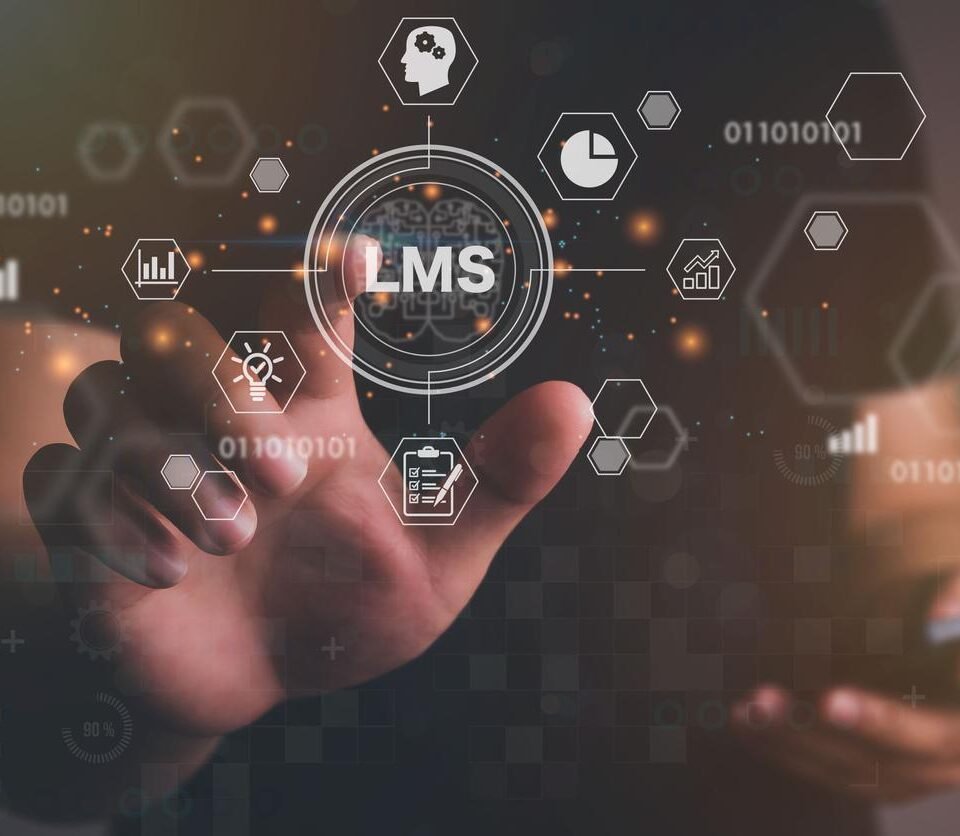In the ever-evolving landscape of higher education, it’s crucial for institutions to adapt and adopt the best tools available to enhance the learning experience for their students; among the myriad of available tools, Learning Management Systems (LMS) have risen as indispensable assets for colleges and universities worldwide.
Delving into the flourishing LMS market, we uncover five compelling reasons why the shift towards LMS isn’t about mere consideration but rather understanding the distinct advantages that set successful institutions apart, while simultaneously illuminating the real benefits that have led esteemed institutions to make this pivotal decision.
Table of Contents
Facilitated Blended Learning
A Seamless Blend of Online and Offline
As the lines blur between traditional face-to-face classes and online instruction, the LMS serves as the backbone supporting blended learning models.
This seamless integration provides students with the flexibility to access lecture materials, participate in online discussions, and submit assignments, all while still benefiting from in-person interactions and live lectures.
Diverse Content Delivery
Through an LMS, instructors can diversify content delivery, incorporating videos, interactive quizzes, podcasts, and other multimedia elements.
This varied approach caters to different learning styles, enhancing comprehension and retention.
Streamlined Administrative Tasks and Communication
Centralized Academic Administration
Gone are the days of disjointed systems for course registration, grade submissions, and content dissemination – an LMS consolidates these tasks, enabling faculty to manage courses more efficiently.
This centralization reduces administrative burdens and ensures consistency across multiple courses or departments.
Top-tier institutions prioritize efficiency, which is why, via an LMS, educators and administrators can dedicate more time to teaching and research.
Transparent and Timely Communication
With built-in communication tools, LMS platforms enable instantaneous communication between students and faculty; whether it’s an announcement about a rescheduled class, feedback on assignments, or addressing student queries, the LMS ensures that communication lines remain open and timely, fostering a vibrant academic community.
Data-Driven Insights for Improved Outcomes
Advanced Analytics for Informed Decisions
Modern LMS platforms come equipped with robust analytics tools; these tools provide insights into student participation, engagement levels, and areas of struggle.
Armed with this data, educators can refine their teaching strategies, provide additional resources, or offer targeted support to students.
Predictive Analysis for Early Interventions
Beyond retrospective analysis, the LMS market is increasingly incorporating predictive analytics; this feature identifies students at risk of falling behind or failing, allowing institutions to intervene early and provide the necessary support, thus improving overall retention and success rates.
Elite institutions can, therefore, leverage the advanced analytics of LMS platforms to refine their curriculum, monitor student progress, and ensure that academic goals are consistently met.
Personalized Learning Paths
Tailored Educational Experiences
Recognizing that every student is unique, an LMS allows for the customization of learning paths; students can progress at their own pace, delve deeper into areas of interest, and access additional resources to address challenges.
This personalization ensures that learning remains relevant and engaging for everyone, regardless of their learning style or pace; students will then feel valued, engaged, and catered to.
Adaptive Learning Environments
Some advanced LMS platforms even adapt in real-time, based on student interactions; for instance, if a student consistently struggles with a particular topic, the system might introduce supplementary materials or change the delivery method to aid comprehension.
Enhanced Collaboration and Peer Learning
Collaborative Tools for Group Projects
Higher education is as much about collaboration as it is about individual study; LMS platforms offer a suite of collaborative tools that facilitate group projects, discussions, and peer reviews.
These tools not only enhance the learning experience but also equip students with skills essential for real-world collaboration.
By offering a plethora of collaborative tools, esteemed institutions are preparing students for the interconnected world while fostering a sense of community and shared purpose.
Global Classrooms and Diverse Perspectives
With the ability to cater to a geographically diverse student base, LMS platforms introduce students to a plethora of perspectives.
This global classroom environment fosters critical thinking, cultural appreciation, and a broader understanding of topics in a global context.
Conclusion: Elevating Higher Education with the LMS
The domain of higher education is more dynamic than ever – institutions are tasked with not only imparting knowledge but also ensuring that this knowledge is delivered effectively, retained, and applied.
The burgeoning LMS market offers a solution that addresses these challenges and more.
In embracing a Learning Management System, higher education institutions are not just adopting a tool – they are ushering in a holistic approach to education; this approach, in turn, recognizes the unique needs of today’s learners, the importance of data-driven insights, and the value of a globally connected learning environment.
As we move forward, the question isn’t whether higher education institutions should adopt an LMS, but rather which LMS can best serve their unique needs and aspirations.
Investing in the right LMS is an investment in the future, ensuring that institutions remain at the forefront of educational excellence.










